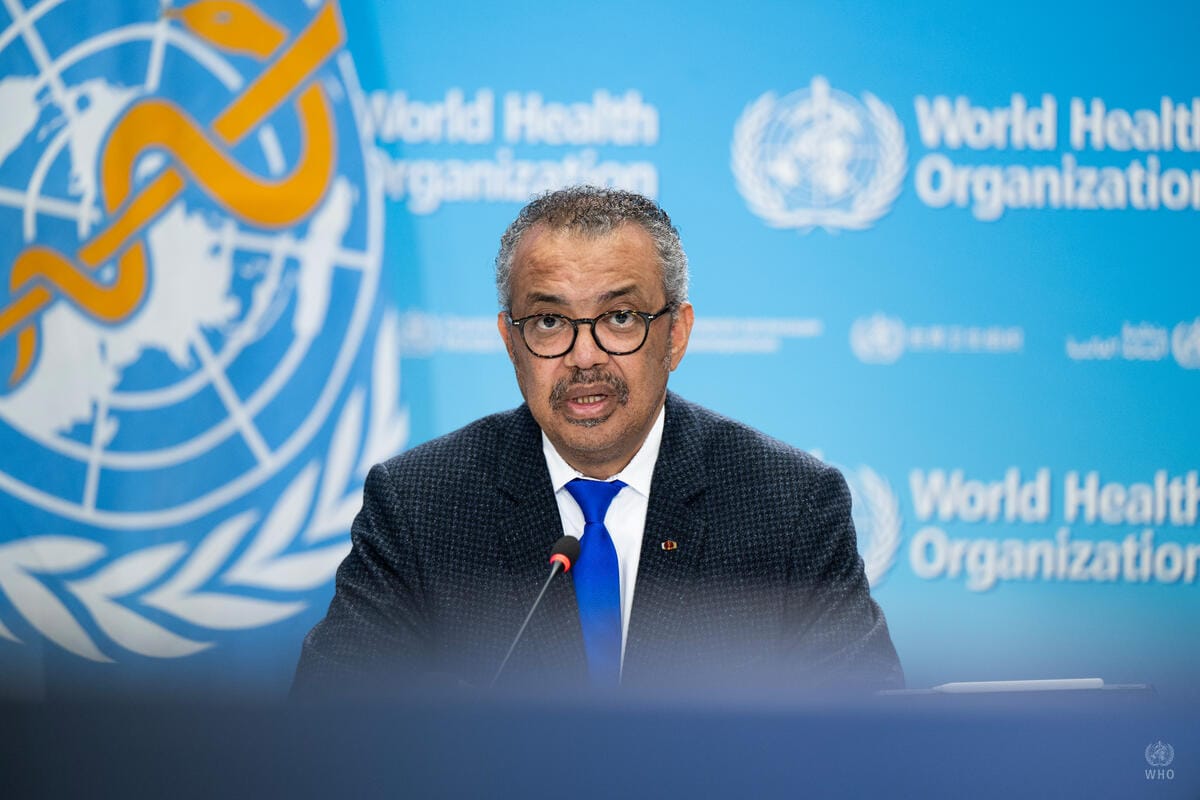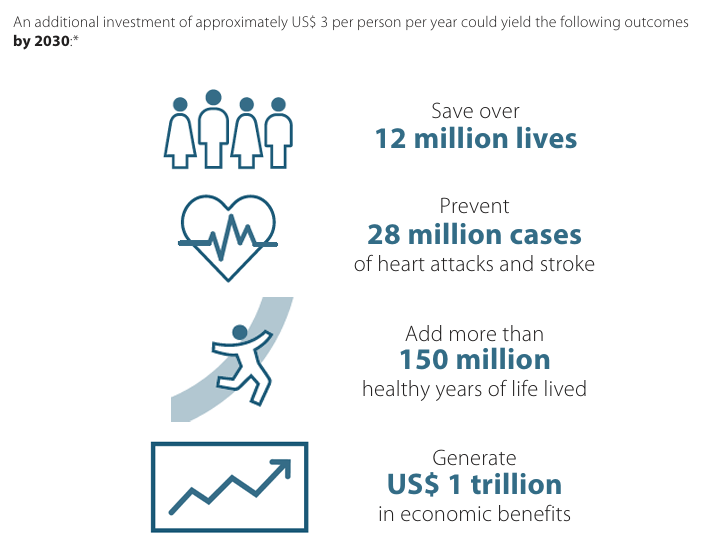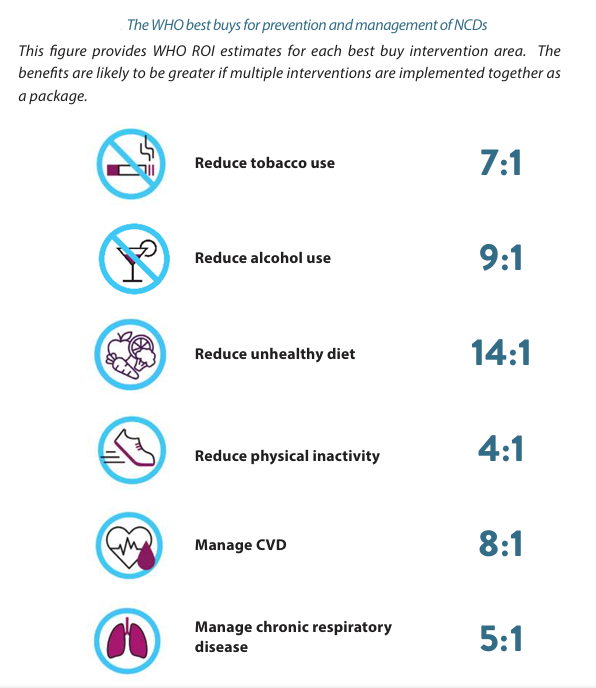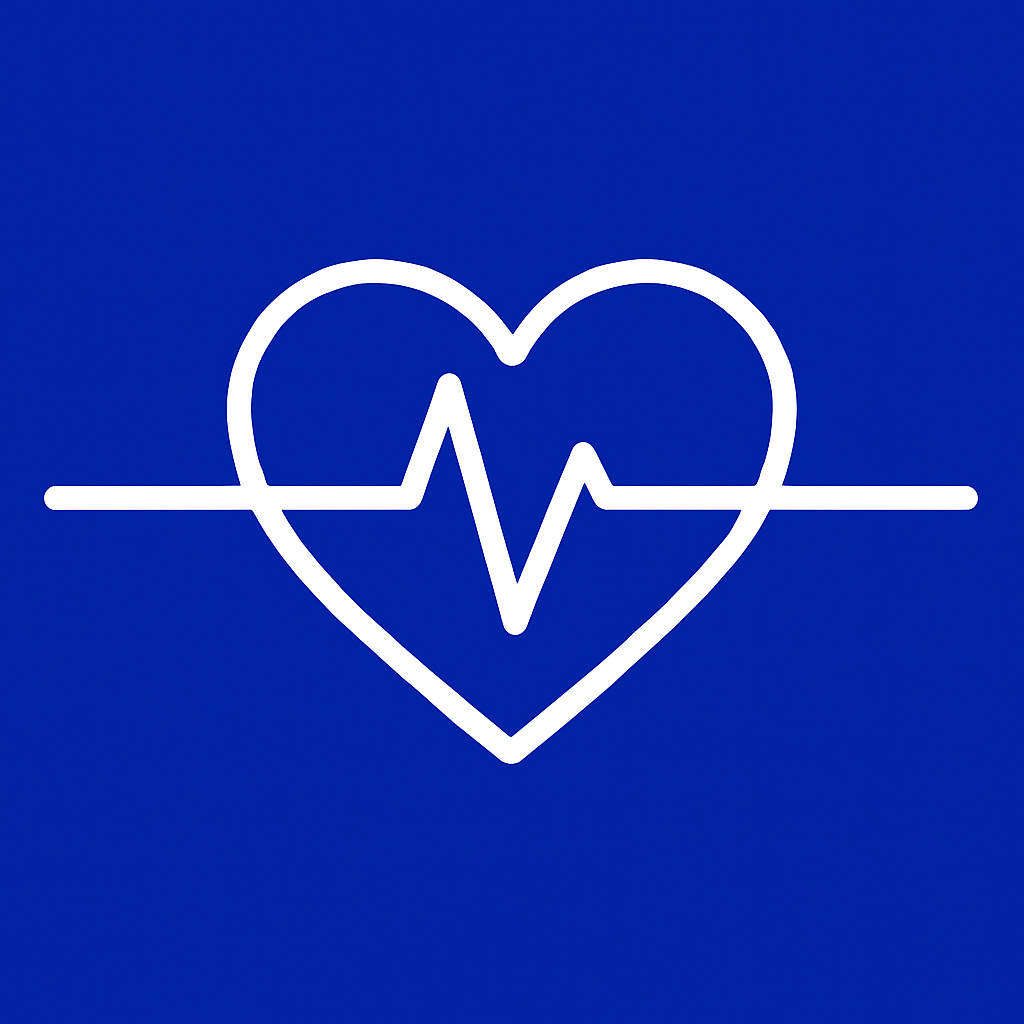WHO: $3 per person could save 12 million lives

Ahead of the Fourth UN High-Level Meeting (HLM4) on 25 September 2025 on non-communicable diseases (NCDs) and mental health, the World Health Organization (WHO) is urging governments to scale up cost-effective interventions to save lives.
"Noncommunicable diseases and mental health conditions are silent killers, robbing us of lives," said WHO Director-General, Dr Tedros Adhanom Ghebreyesus. "We have the tools to save lives and reduce suffering. Countries like Denmark, South Korea, and Moldova are leading the way, while others are stalling."
A new WHO report, ‘Saving lives, spending less’, estimates that investing just three dollars (€ 2.5) per person annually on proven measures could save 12 million lives, prevent 28 million heart attacks and strokes, and deliver over US$1 trillion in economic benefits by 2030.

“Progress is nowhere near enough to meet the SDG target,” said Tedros, “In 60% of countries, progress has slowed compared to the decade before, and in some places, deaths from NCDs are rising again.”
Asked by Vital Signs about the lack of progress, WHO’s Cross-Cutting Lead on Non-Communicable Diseases and Mental Health, Dr Guy Fones said: “We've reversed some of the gains before the pandemic, which is one very important element. But also, we have to understand now that the ‘best buys’ have lost commitment in some countries.”
The report lists 29 ‘Best Buys’, including both prevention (reduce tobacco use, alcohol use, unhealthy diet and physical inactivity) and management (manage cardiovascular disease, chronic respiratory disease and cancer).

HLM4
WHO is calling on leaders to adopt bold policies at HLM4, including taxing tobacco and alcohol, strengthening primary health care, protecting children from harmful marketing, and expanding access to essential medicines and screening.
“The main outcome of next week's high-level meeting will be a political declaration that countries have been negotiating over the past year. The draft declaration includes concrete and ambitious targets to see 50 million fewer tobacco users by 2030 and to see 150 million more people with access to mental health care,” said Tedros.
When asked by Kerry Cullinan of Health Policy Watch to comment on how the draft declaration had been weakened—given that countries are now merely urged to “consider” taxing cigarettes and alcohol, and references to taxing sugary drinks have been removed—a WHO official responded that it still contains "very strong" language on taxing and restricting the marketing of alcohol and tobacco, and that “holistically speaking, if implemented, it will save many millions of lives.”
